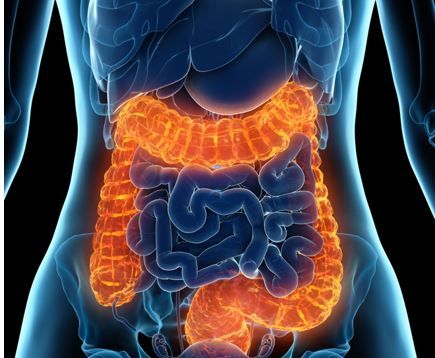- Clinical Technology
- Adult Immunization
- Hepatology
- Pediatric Immunization
- Screening
- Psychiatry
- Allergy
- Women's Health
- Cardiology
- Pediatrics
- Dermatology
- Endocrinology
- Pain Management
- Gastroenterology
- Infectious Disease
- Obesity Medicine
- Rheumatology
- Nephrology
- Neurology
- Pulmonology
Vedolizumab (Entyvio) SC Approved for Maintenance Therapy in Adults with Moderately to Severely Active Crohn Disease
Vedolizumab for subcutaneous injection in now indicated for maintenance therapy following IV induction in both Crohn disease and ulcerative colitis.
Vedolizumab (Entyvio; Takeda) subcutaneous (SC) injection has earned FDA approval for maintenance therapy in adults with moderately to severely active Crohn disease after they have completed intravenous induction therapy with the biologic, according to an announcement from Takeda.1
©SciePro/stock.adobe.com

This approval in Crohn disease follows the September 2023 approval of the gut-selective alpha4beta7 integrin inhibitor via subcutaneous administration for the same maintenance indication in adults with moderately to severely active ulcerative colitis.1
The IV formulation of vedolizumab was first approved by the FDA in 2014 for adults with moderate to severe ulcerative colitis and Crohn disease who had an inadequate or loss of response to or could not tolerate at least one previous treatment with corticosteroids, immunomodulators, or tumor necrosis factor blockers.2
The approval of vedolizumab SC was based on the phase 3 randomized, double-blind placebo-controlled VISIBLE 2 trial, which enrolled 409 adults with moderately to severely active Crohn disease who had had clinical response to vedolizumab IV by study week 6 after receiving 2 doses of open label IV vedolizumab at baseline and week 2.1
At the 6-week mark, the 409 participants were randomly assigned to receive the biologic agent or placebo via SC injection every 2 weeks. The VISIBLE 2 primary endpoint was clinical remission at study week 52, defined as total Crohn Disease Activity Index (CDAI) score of 150 or less.1
Among the study participants who received SC vedolizumab, nearly half (48%) reached long-term clinical remission after 52 weeks of treatment compared with approximately one-third (34%) of those who received placebo (P <.01), according to the company statement.1 The safety evaluation determined the SC vedolizumab profile is generally consistent with the known safety profile of the IV formulation, but also included local injection site reactions (ie, injection-site erythema, rash, pruritus, swelling, bruising, hematoma, pain, urticaria, and edema), Takeda said.1
“Crohn’s disease is a complex and usually progressive disease for which an appropriate management plan is critical. My primary goal as a clinician is always to get patients to achieve remission,” Timothy Ritter, MD, senior medical director, Department of Research and Education, GI Alliance Research and assistant professor of medicine, TCU School of Medicine, said in the Takeda statement.1 “In VISIBLE 2, about half of patients treated with Entyvio SC achieved long-term clinical remission.” Ritter added that the VISIBLE 2 outcomes “reaffirm the well-established efficacy profile of Entyvio, regardless of route of administration.”1
According to the Centers for Disease Control and Prevention, approximately 3.1 million adults in the US have been diagnosed with inflammatory bowel disease, comprised of Crohn disease and ulcerative colitis.3 There are significant differences in prevalence of the disease among racial and ethnic groups, according to new findings from the Crohn’s & Colitis Foundation. The organization’s study found that among White Americans, the rate of IBD is 7 times higher among than among Black Americans, 6 times higher than among Hispanic Americans, and 21 times higher than among Asian Americans.4
References
1. US FDA approves subcutaneous administration of Takeda’s Entyvio (vedolizumab) for maintenance therapy in moderately to severely active Crohn’s disease. News release. Takeda. April 18, 2024. Accessed April 22, 2024. https://www.takeda.com/newsroom/newsreleases/2024/fda-approves-subcutaneous-administration-of-entyvio/
2. FDA approves Takeda’s Entyvio (vedolizumab) for treatment of adults with moderately to severely active ulcerative colitis of Crohn’s disease. News release. Takeda. May 20, 2014. Accessed April 22, 2024. https://www.takeda.com/newsroom/newsreleases/2014/FDA-Approves-Takedas-Entyvio-vedolizumab-for-the-Treatment-of-Adults/
3. Prevalence of IBD. Centers for Disease Control and Prevention. Page reviewed April 14, 2022. Accessed April 22, 2024. https://www.cdc.gov/ibd/data-and-statistics/prevalence.html
4. Groundbreaking study led by the Crohn’s & Colitis Foundation estimates nearly 1 in 100 Americans has inflammatory bowel disease (IBD). News release. Crohn’s & Colitis Foundation. July 20, 2023. Accessed April 22, 2024. https://www.crohnscolitisfoundation.org/groundbreaking-study-led-the-crohns-colitis-foundation-estimates-nearly-1-100-americans-has
Clinical Tips for Using Antibiotics and Corticosteroids in IBD
January 5th 2013The goals of therapy for patients with inflammatory bowel disorder include inducing and maintaining a steroid-free remission, preventing and treating the complications of the disease, minimizing treatment toxicity, achieving mucosal healing, and enhancing quality of life.
